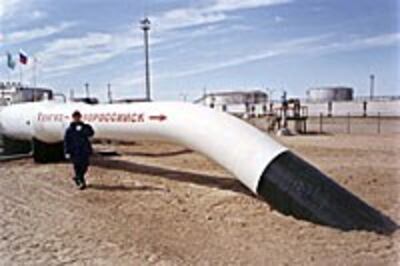
China’s foreign energy investments hit an unexpected snag in Kazakhstan last month after Kazakh officials raised concerns about the extent of Chinese control.
In October, Canadian-based Nations Energy announced plans to sell its operations in Kazakhstan to China International Trust and Investment Corp. (CITIC) for U.S. $1.9 billion. Last year, China National Petroleum Corp. (CNPC) bought PetroKazakhstan, a mid-sized oil producer, for nearly U.S. $4.2 billion.
On Nov. 1, two Kazakh lawmakers raised objections to China’s buying spree during a session of the Kazakh parliament, arguing that Beijing has been gaining too much control of the country’s output.
The controversy has also drawn the attention of Kazakh officials.
It’s probably just a general feeling that ‘Prices of oil are high, and this is our oil, and we should be producing it and selling it and making the money, and not another country.
Kazakh Deputy Prime Minister Karim Massimov signaled opposition Nov. 23 after he was pressed to approve the proposed purchase by CITIC during a visit to China, Bloomberg News reported.
“The government has a right to block any transaction in the interests of national security,” Massimov said.
Energy and Natural Resources Minister Baktykozha Izmukhambetov told a parliamentary committee a week earlier that the Kazakh government should “take urgent measures to stop this agreement.”
Izmukhambetov said the law gives the Kazakh government 45 days to rule on the sale, but Massimov suggested it could take longer to “make a decision in the interest of the Kazakh people.”
In interviews with Radio Free Asia, energy experts said the resistance to China’s latest acquisition may be a sign that Kazakhstan has reached a saturation point with Beijing’s oil ambitions.
Robert Ebel, chairman of the energy program at the Washington-based Center for Strategic and International Studies, said that China invests in Kazakhstan because it is a close neighbor with available oil. The two countries opened China’s first import pipeline last year.
Instead of fearing Chinese domination, though, Kazakhstan may now be more concerned with its own commercial advantage, Ebel said.
“It’s probably just a general feeling that ‘Prices of oil are high, and this is our oil, and we should be producing it and selling it and making the money, and not another country,’” Ebel said.
China has faced criticism for trying to lock up oil supplies through foreign acquisitions instead of buying on the open market. It has also been blamed for helping to drive up oil prices by paying too much for assets abroad.
Ebel said that China should reconsider its entire policy.
“They’re not just going out and buying oil,” Ebel said. “Anybody can do that. [Instead, they’re] trying to buy the producing assets so it’ll be theirs. They see that as a way of gaining security of supply. But I would recommend that they not take that approach. That’s money wasted.”
Mikkal Herberg, director of the Asian energy security and globalization programs at the National Bureau of Asian Research in Seattle, said that Kazakhstan’s concerns about Chinese investment are a sign that the country’s economy is getting stronger as its oil industry grows.
“When countries are flush and doing well economically on oil revenues, they get to be very selective,” Herberg said. “The Chinese are probably close to as far as they can go in terms of a share of the Kazakh oil sector today.”
Herberg noted that this could be a sign of things to come for China elsewhere, since Kazakhstan was the first country to receive Chinese oil investment under China’s almost decade-long “go-out” policy of buying foreign assets.
The only other foreign country with as large a concentration of Chinese energy investment is Sudan, which has limited choices in partners due to international sanctions and its long civil war, Herberg added.
“The wheel has turned in Kazakhstan first, but you’re beginning to see similar things in Latin America in the mining and minerals sector where Chinese investment and involvement is getting to be very substantial.”
This is “probably a natural part of the process,” Herberg said.
Original reporting by Michael Lelyveld. Edited for the Web by Richard Finney.
